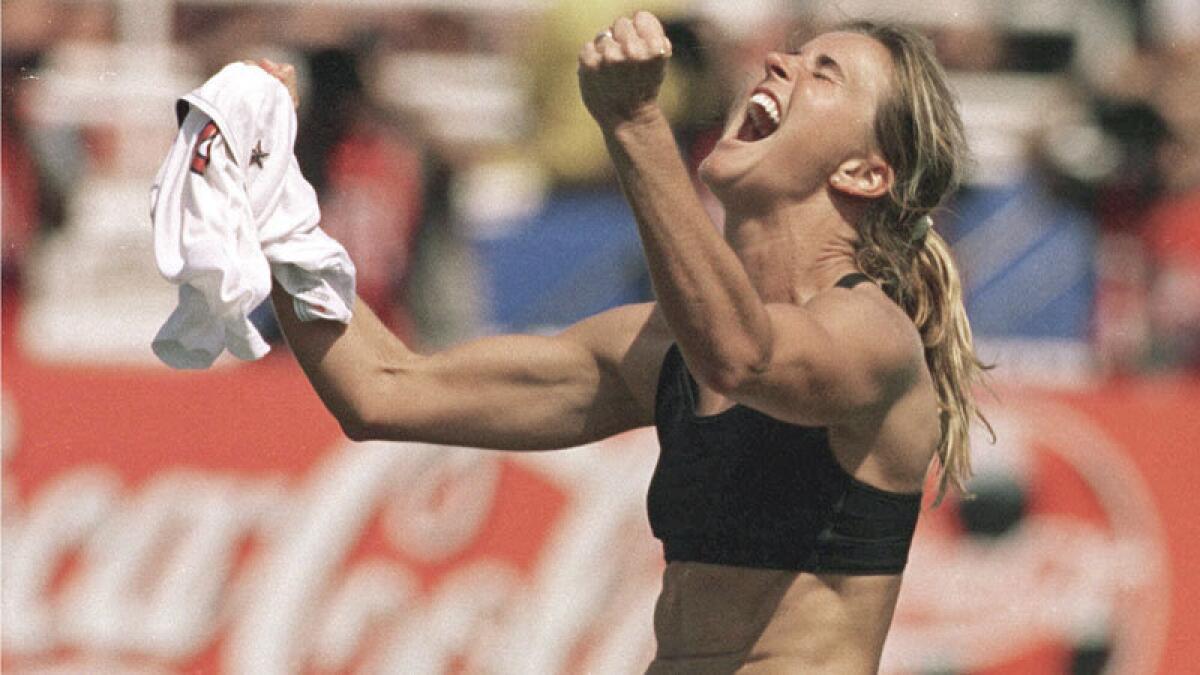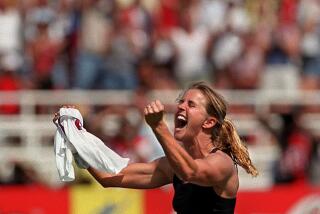Brandi Chastain says she will donate her brain for CTE research

Brandi Chastain reacts after scoring the winning goal at the 1999 women’s World Cup.
- Share via
Brandi Chastain, best known as the player who scored the game-winning penalty kick that gave the United States the 1999 Women’s World Cup title, announced Thursday that she will donate her brain for concussion research when she dies.
“It is really about: How I can help impact soccer beyond scoring a goal in 1999 in the World Cup final. Can I do something more to leave soccer in a better place than it was when I began this wonderful journey with this game?” she said.
Join the conversation on Facebook >>
Chastain will donate her brain to the VA-BU-CLF Brain Bank, a joint project with the Department of Veterans Affairs and Boston University School of Medicine, the research team that announced last month that it had found signs of CTE in the brain of former Oakland Raiders quarterback Ken Stabler.
“We currently know so little about how gender influences outcome after trauma; her pledge marks an important step to expand our knowledge in this critical area,” said Dr. Ann McKee, director of the brain bank program, which has 307 brains, but only seven from women.
Chastain played for the U.S. national team from 1988 to 2004. She recently partnered with the Concussion Legacy Foundation’s Safer Soccer Initiative, which calls on youth coaches to eliminate headers in practice and in games for children younger than 14.
“It’s been a journey about education for me,” she said. “I’ve been involved in sports for a long time. Only up until recently have people been talking about concussions, and then concussions specifically related to soccer. It’s been mostly a football problem or a football issue. But it’s not.”
ALSO
Late Raiders great Ken Stabler suffered from CTE, researchers find
Brain disease CTE found in 87 of 91 NFL players tested, researchers say
Autopsy finds concussion-related brain changes in 25-year-old former football player
More to Read
Go beyond the scoreboard
Get the latest on L.A.'s teams in the daily Sports Report newsletter.
You may occasionally receive promotional content from the Los Angeles Times.











